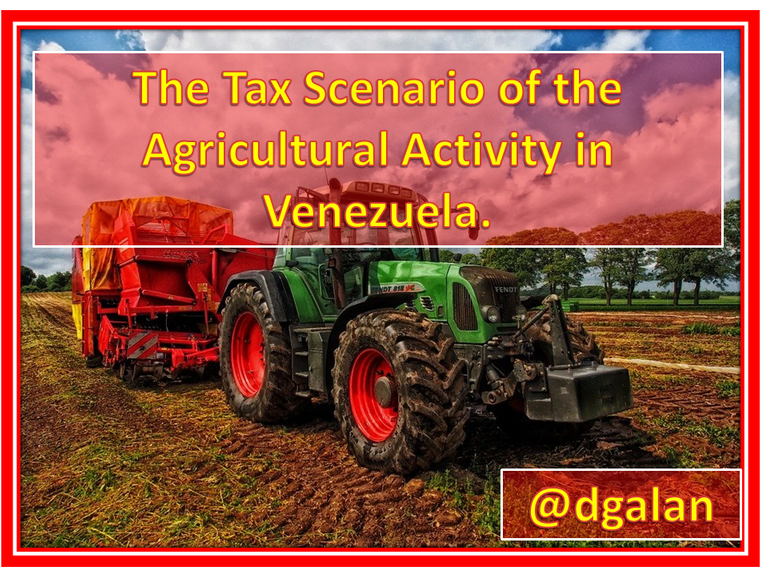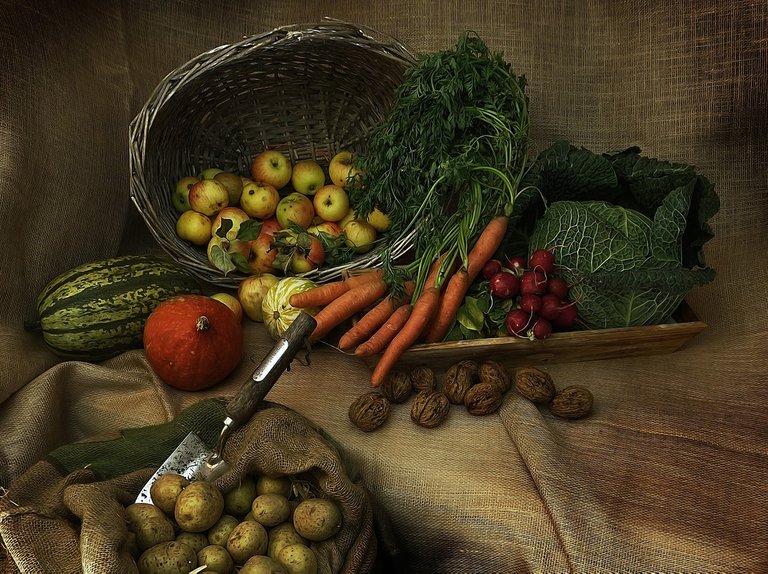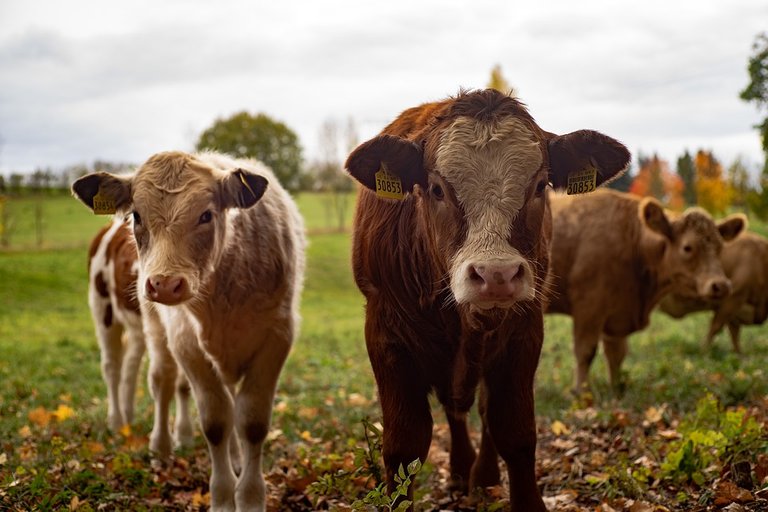The Tax Scenario of the Agricultural Activity in Venezuela
Written by:Diomer Antonio Galán Rincón.
Bachelor's Degree.Public Accounting / MSc.Science of Higher Education.

Introduction
Agricultural activity requires economic and production development, considering that the current situation in Venezuela calls for the activation and reactivation of production systems, not only in agriculture but also in all sectors to contribute to the national supply.
This is an important reason to manage material, economic, human, input and even time resources in a timely manner. But, in order to obtain a good management of the resources, it is necessary to consider all the aspects that affect in one way or another the use of these resources and even the tax scenario that could regulate or that regulates such activity.
In search of an objective, congruent and timely analysis with the current situation in Venezuela, it is important to be able to compare and reason about the tax context that involves the primary agricultural activity in the country in order to know if the fiscal and tax regulations in Venezuela are really efficient for the productive, scientific and technological development of the primary agricultural activity.
For the improvement and growth of the people, the states and municipalities have assumed relevant responsibilities to achieve their own purposes, having to increase taxes as sources of resources to satisfy their needs and goals; therefore, they have established certain legal requirements that demand the compliance of obligations to companies, agricultural and livestock companies and organizations engaged in primary and industrial production activities, mercantile or rendering services for profit; with the purpose of keeping the control and registration of operations and mercantile transactions; in addition, they can contribute to the State, generating sources of resources necessary for the administration of the State.
Leaving aside oil revenues and mining royalties, in Venezuela there are other types of revenues such as taxes, rates and contributions; these are taxes that are differentiated by the objective of the act to be carried out and by the objective budget carried out.

¿What does the Organic Tax Code (Código Orgánico Tributario, C.O.T.) establish about taxes? :
"They are public revenues of public law consisting of compulsory pecuniary benefits (money), unilaterally imposed by the State". This means that they are demanded by the public administration as a consequence of the realization of the taxable event (agricultural activity) to which the law links the duty to contribute (cancel); in order to obtain the necessary income for the support of public expenditure, among other purposes.
The Venezuelan tax system has been evolving gradually, thus achieving the integration between the characteristics of the taxes and the economic needs of the country; being the Income Tax one of the taxes that has been subject to several modifications, since it is key in the State's strategy to obtain resources that contribute to the efficient public administration.
Some producers of the primary agricultural sector in Venezuela have been contributing to public charges since the general tax reform was born, with the publication of the new organic tax code in 1992; however, since then, a series of modifications and reformulations have been made, in addition to some decrees that transform the legal provisions in some specific cases.

But the above is not the reality of the entire primary agricultural productive system; being that in Venezuela most of the small producers in this area, have never paid or declared taxes to the public administration; or informatively at least to know the amount of tax that would have corresponded to pay, this is affecting the economic development of the agricultural sector, because it is unknown the working capital that corresponds to demonstrate with the productive development to continue enjoying the benefit of the exemption and the right to the allocation of land.
If this situation continues to occur in the tax context, the productive development of the primary agricultural sector in Venezuela, which is committed to the supply of products for national consumption, could be at stake, which would create chaos and even more critical with the economic situation that the country is going through at this moment. Therefore, the following question arises:
¿Is the tax scenario established in Venezuela for the primary agricultural activity process efficient for the productive, scientific and technological development of this sector?
Consequently, it is necessary to analyze the tax scenario in Venezuela for the primary agricultural activity, in order to relate the tax system with the different agricultural activities and their accounting control, so as to recognize some alternatives to improve tax control in the country.
Conclusion:
We can say that the tax scenario in Venezuela for the primary agricultural activity has been little analyzed, being considered negative for the development of this activity, since its productive process contributes significantly to the economic and social improvement of the country, providing a national agri-food supply.
The lack of interest shown in this regard has limited the scientific and technological evolution of this sector, generating an atmosphere of uncertainty due to the lack of knowledge of the obligations acquired by the producers.
More support should be given to the primary agricultural sector with clear tax and financing policies, to strengthen the national agricultural sector so that it can guarantee the total national supply and leave aside imports of agricultural products, most of which are low in nutritional and nutritional quality.
I hope you like my article and I would appreciate all your comments.
Bibliographical Reference:
1.- National Assembly of the Bolivarian Republic of Venezuela (2005) Organic Tax Code. Caracas, Venezuela.
2- Organic Tax Code. (2005). Official Gazette of the Bolivarian Republic of Venezuela, 37305 (Extraordinary).
3.- Gerardo Mendoza (2016) Tax update on farms and agro-industries.
4.- Presidency of the Bolivarian Republic of Venezuela (2011) Decree No. 8,210 on income tax exemption. Official Gazette No. 39.670 dated May 10, 2011. Caracas, Venezuela
0
0
0.000
Electronic-terrorism, voice to skull and neuro monitoring on Hive and Steem. You can ignore this, but your going to wish you didnt soon. This is happening whether you believe it or not. https://ecency.com/fyrstikken/@fairandbalanced/i-am-the-only-motherfucker-on-the-internet-pointing-to-a-direct-source-for-voice-to-skull-electronic-terrorism